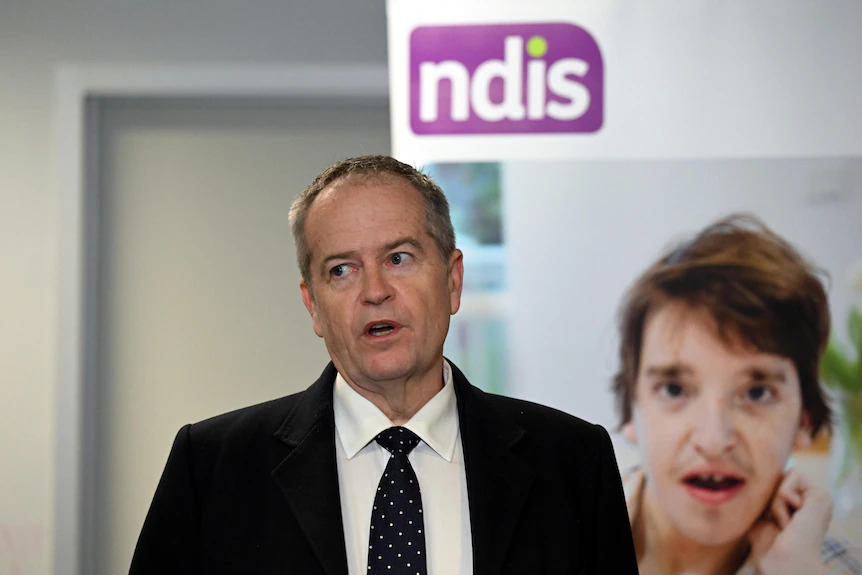NDIS Review Puts Bill Shorten Under Pressure Over Rising Costs

Comprehensive NDIS Review Advocates Numerous Changes Amidst Rising Costs Pressuring Bill Shorten
In a pivotal development, a comprehensive review of the National Disability Insurance Scheme (NDIS) has highlighted the need for urgent interventions to ensure the sustained support of over 600,000 Australians with disabilities well into the future.
The federal government has been grappling with the soaring costs of the multibillion-dollar NDIS scheme, prompting a call for strategic measures. Earlier this year, the national cabinet agreed to cap the scheme’s growth rate at 8% from 2026, intensifying the pressure on the government to address these escalating expenses.
Central to the review’s findings is a call to refocus the NDIS on its original objectives, prioritizing support for individuals with complex needs and emphasizing “functional impairment rather than medical diagnosis.” The report emphasizes viewing the NDIS as one component of a more interconnected disability support services system. It urges governments to bolster mainstream disability services and foundational supports outside the NDIS over the next five years, catering to those unable to access the scheme.
The report’s authors stress the interconnected nature of the issues, asserting,
“You can’t fix the NDIS without fixing everything around it.”
The envisioned solution involves creating a holistic system of support, encompassing accessible mainstream services, foundational supports, and the NDIS.
The disability advocacy community has welcomed the report’s focus on addressing community requests, marking a positive step forward.
Released on Thursday morning, the much-anticipated report puts forward 26 recommended changes and outlines 139 detailed actions aimed at rectifying issues within the NDIS and improving the broader support landscape for Australians with disabilities.
Key proposals include a fundamental reimagining of the disability support system, incorporating a five-year transition for certain individuals from the NDIS scheme to foundational supports. NDIS Minister Bill Shorten acknowledges that these changes won’t happen overnight, and any forthcoming reforms will be developed in collaboration with the disability community under the Albanese government, expected next year.
The authors of the report, Prof Bruce Bonyhady and former bureaucrat Lisa Paul, advocate for a three-layered system. This system entails targeted individual support, predominantly for those with the greatest support needs, delivered through the NDIS. The middle layer comprises foundational supports offered outside the scheme, catering to individuals requiring less intensive support, such as assistance with cooking and financial matters. Early intervention and support systems for children with developmental needs also fall under this layer. The third layer emphasizes mainstream services and community supports provided through existing channels, such as schools.
Bonyhady and Paul critique the current NDIS focus on diagnosis rather than addressing functional impairment. They emphasize the need for a consistent approach to identifying developmental concerns early and providing evidence-based support for families.
The proposed overhaul aims to eliminate the automatic access list introduced at the scheme’s inception, which led to inequities and favored those with diagnoses. Instead, the report recommends a more comprehensive assessment process, ensuring a participant’s needs are accurately determined, and an appropriate budget is allocated. The assessments are envisioned to be conducted by highly qualified individuals who spend sufficient time with participants to understand their holistic life circumstances.
To facilitate the proposed changes, a guide to transition is recommended to ease participants into the new system. The report suggests that alterations to access and budget-setting processes for children and young people should only be implemented once widespread foundational supports are in place.
In addition, the report proposes the introduction of a new role, the navigator, gradually phasing out existing case managers. Navigators would serve two primary functions: general navigators offering information on available support services and specialists assisting participants with complex needs.
A central online platform is also envisioned to serve as a one-stop shop for essential, accessible, timely, and reliable information, helping users identify providers and services in their area.
Bill Shorten welcomes the report’s release, emphasizing its comprehensive and accessible nature. During a National Press Club speech, Shorten expresses determination to deliver a “mark two” of the NDIS, acknowledging the need for continuous improvement, paralleling other major political reforms like Medicare.
The report’s release follows a joint funding agreement between the commonwealth and the states and territories to support additional disability and mainstream services on a 50-50 basis. Prime Minister Anthony Albanese acknowledges the unsustainable growth trajectory of the NDIS without changes to existing arrangements, with projections estimating its growth to exceed $50 billion in the next federal budget, potentially reaching over $90 billion annually within a decade.
While Shorten remains optimistic about the report’s impact, Shadow Disability Minister Michael Sukkar expresses reservations, citing unanswered questions and unspecified details about the scheme’s 8% growth cap and the nature of the proposed foundational supports. Participants are left uncertain about the specifics and timing of these foundational supports, highlighting the ongoing challenges in implementing comprehensive changes to the NDIS.
Our Support Services
About us
At Wisdom Care, we pride ourselves in helping you implement your NDIS plan: by providing tailored services, experienced support workers and connecting you to suitable Allied health professionals.



